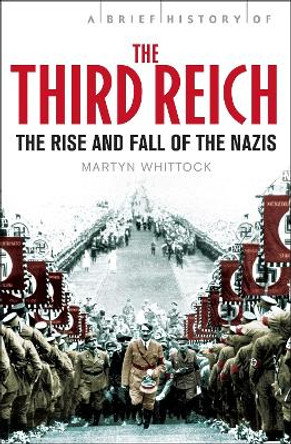Description
About the Author
Gesine Gerhard is professor of History at the University of Pacific in Stockton, California. She has published on agricultural and food policy, the Nazi era, and environmental history in many academic journals.
Reviews
Food has been a vital part of war since time immemorial, from early biblical sieges to the Hunger Blockade of November 1918 and the later Soviet and Chinese mass starvation of millions. Decades ago, the noted historian C. Paul Vincent, in Politics of Hunger (CH, May'86), concluded that the withholding or interruption of the availability of foodstuffs had become a basic political weapon of modern warfare, against both foreign enemies and vulnerable internal minorities. By WW II, food policy in Germany was as important as the manufacture of arms and fell to the hard-liner Herbert Backe, a failed academic who ingratiated himself in R. Walther Darre's Reich Ministry for Food and Agriculture. As a wartime intimate of Hitler and Goering, Backe played a major role in the allocation of food rations to the public, the mass murder of Soviet soldiers and civilians, and the use of food shortages as a justification for genocide. Indeed, in the very capable hands of historian Gerhard, this excellent volume, based on original diaries, interviews, and outstanding research, examines the use and misuse of food, which may indeed have been Nazi Germany's justification for the war itself. Summing Up: Highly recommended. All academic levels/libraries. * CHOICE *
Gerhard populates her entire book with such tidbits that astonish any unfamiliar with Germany history; even experts can learn something new by reading this book. Gerhard is a subject matter expert, and she has produced a short work that can be read fruitfully by general interest readers. * Agriculture and Human Values *
Herbert Backe is hardly unknown in the pantheon of Nazi villains, but Gesine Gerhard's clearly written account of German food and agricultural policy before, during, and after the Second World War uses his personal letters and diaries to reveal his considerable responsibility for the bizarre, brutal and ultimately brainless policy decisions that lost Germany the war. This is an important book for historians of rural Europe in the twentieth century and for anyone who still wonders why Hitler invaded the Soviet Union. -- Paul Brassley, University of Exeter
This is more than another book on the Third Reich. It regards the Third Reich through the lens of food and, thereby, gains new insights in the Nazis' efforts to build the 'German people' and fight their enemies. -- Ernst Langthaler, Director of the Institute of Rural History, St. Poelten/Austria, and Privatdozent of Economic and Social History at the University of Vienna/Austria
Book Information
ISBN 9781442227248
Author Gesine Gerhard
Format Hardback
Page Count 196
Imprint Rowman & Littlefield
Publisher Rowman & Littlefield
Weight(grams) 435g
Dimensions(mm) 236mm * 162mm * 19mm






